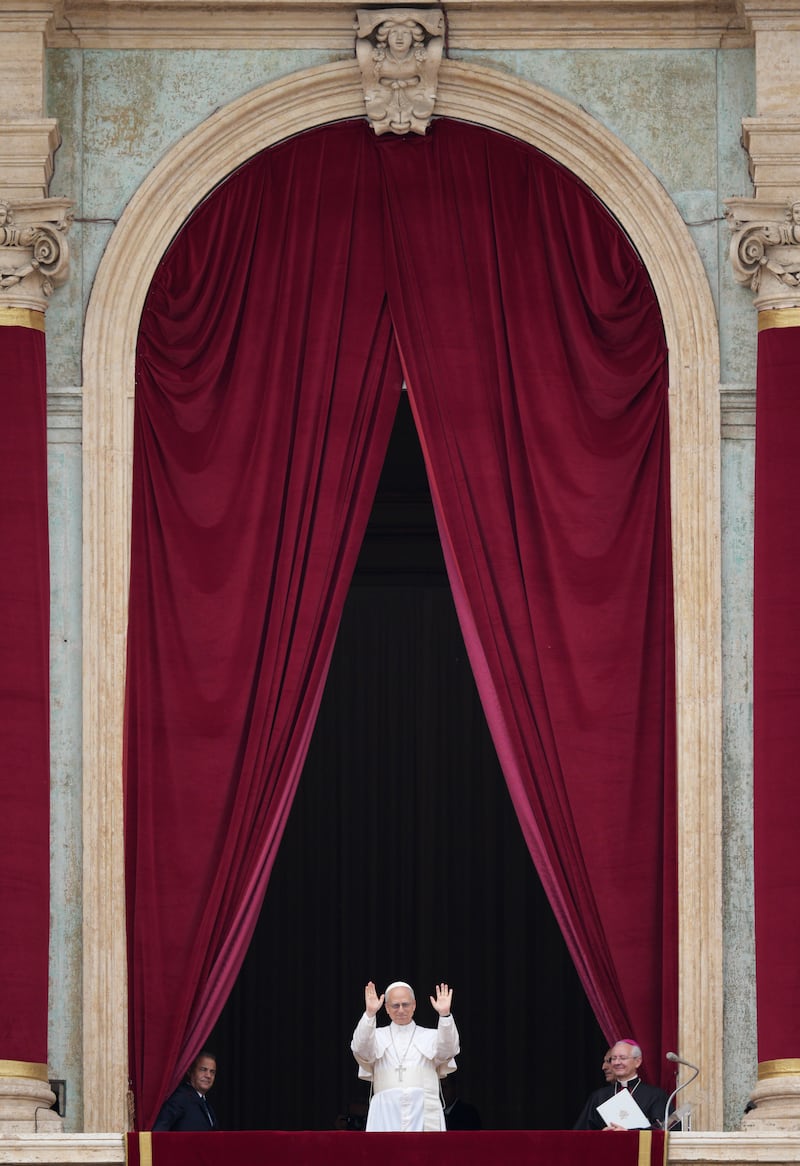It’s a story you might say could happen “only in America,” but this one is unfolding in Rome: Bob from the south side of Chicago is how His Holiness, the infallible supreme pontiff of the Roman Catholic Church and leader of some one billion Catholics worldwide.
Cardinal Robert Prevost, 69, is now Pope Leo XIV.
His selection was one that bucked long-held assumptions: that picking an American pope might put too much power in American hands; that popes should probably shift ideologically from one to the next, following more liberal eras with conservative ones and vice-versa. An American pope of Creole descent who spent much of his career in Peru is not the most obvious choice. And it has opened up questions and speculations about his position, perspective and politics, especially as Donald Trump attempts to make America great again (and seems to be scaring the pants off much of the rest of the world).
An American Pope is not ascending only in Rome, then, and his selection isn’t simply the result of Vatican politicking. This is a moment of worldwide importance. And Leo’s selection may be as much a response to Trump as an endorsement of the man himself.

A dive into Leo’s politics reveals a Pope who is indeed Catholic: Anti-abortion, anti-gay and far from a radical leftist, despite what a concerted conservative freakout might suggested. He appears to be a Republican, having voted in Illinois Republican primaries in the past. But Leo XIV also seems to operate similarly in many regards to the recently-deceased Pope Francis, caring deeply, for example, about the plight of migrants. A Twitter account linked to his name includes criticism of Vice President JD Vance for suggesting that Americans should love their fellow citizens more than newcomers to our shores. This impulse to empathy makes him a controversial choice among the pro-Trump crowd.
Steve Bannon whined about the “worst pick for MAGA Catholics.” Conspiracy theorist Laura Loomer griped that Leo is “anti-Trump, anti-Maga, pro-open Borders, and a total Marxist,” while conspiracy theorist Jack Posobiec complained that “This choice… was done as a response, as a message to President Trump.”
Trump seems to be doing his best to reshape the world order, and not in a good way. His tariffs have thrown global markets and international businesses into chaos. His cruelties and constitutional violations have shocked people at home and abroad, and reminded the authoritarian-curious and authoritarian-fearing alike what it really looks like to put an unhinged authoritarian in power. And so there is already blowback. In Canada last month, a liberal party that seemed guaranteed to lose managed to triumph in what has been widely seen as a rebuke of Trumpism. Australia’s liberals also won in a massive victory. In the US, several smaller elections—in Wisconsin, in Iowa—have brought big Democratic wins.
The selection of the pope is obviously not the same thing as a political election. But it is a process that entrails a series of political considerations and, whether the Church wants to admit it or not, is responsive to public opinion and the cultural moment (not to mention reflective of who has power and influence). And it seems that in this moment, the leaders of the Catholic Church feel a need to take a small stand for decency over dogma.
On the Catholic right—and many leaders of the hard-right Catholic opposition are Americans—Pope Francis was a contentious figure, mostly for saying things like (to paraphrase) “be decent to refugees,” “care for the poor” and “don’t spend your time shaming, attacking, and abusing other people when you could spend your time loving them.”

This is a branch in the Church, as in the public more broadly, who seem to prefer harsh dogmatism. It is the Catholicism of Vance, who converted to the faith: one that seems much more concerned with the lives of fertilized eggs than actual babies, let alone desperate migrants.
These conservative Catholics had angled for a new pope less like Francis and more like Trump— someone more opposed to immigration and focused less on human rights. They lost in part because most of the bishops in the conclave were appointed by Francis. But an ideological shift rightward may have been more likely had Church leaders been more worried about the excesses of progressivism than of the creep of fascism. (Terms like “progressive” are, of course, significantly overstated in the context of the Catholic Church, a formal patriarchy in which women can never take on the highest leadership roles and that aggressively opposes a woman’s right to basic bodily autonomy.)
One simply hopes that Leo, like Francis, refuses to make opposing women’s rights and LGBT rights his papacy’s primary aim. That he does seem likely to focus on other issues is precisely why the hardliners area already lining up in opposition.
And that he does seem like the kind of person who will stand up for the foundational values of his faith even in the face of right-wing intimidation—that he seems thoughtful and decent and principled, and in that way the antithesis of Trump—seems to be precisely why Leo was chosen.
The post Opinion: Why It Matters Pope Leo XIV Stole Trump’s Thunder appeared first on The Daily Beast.




